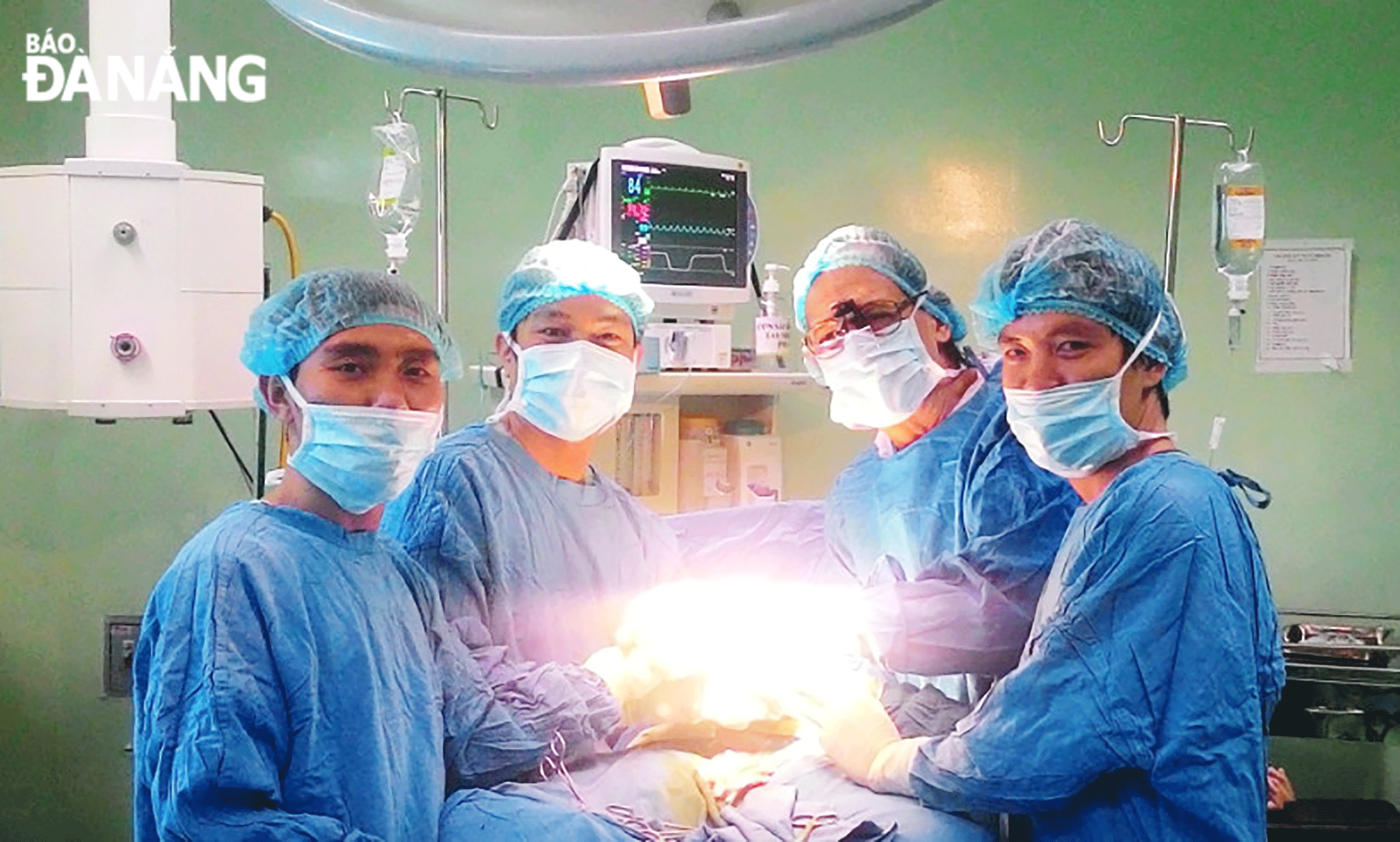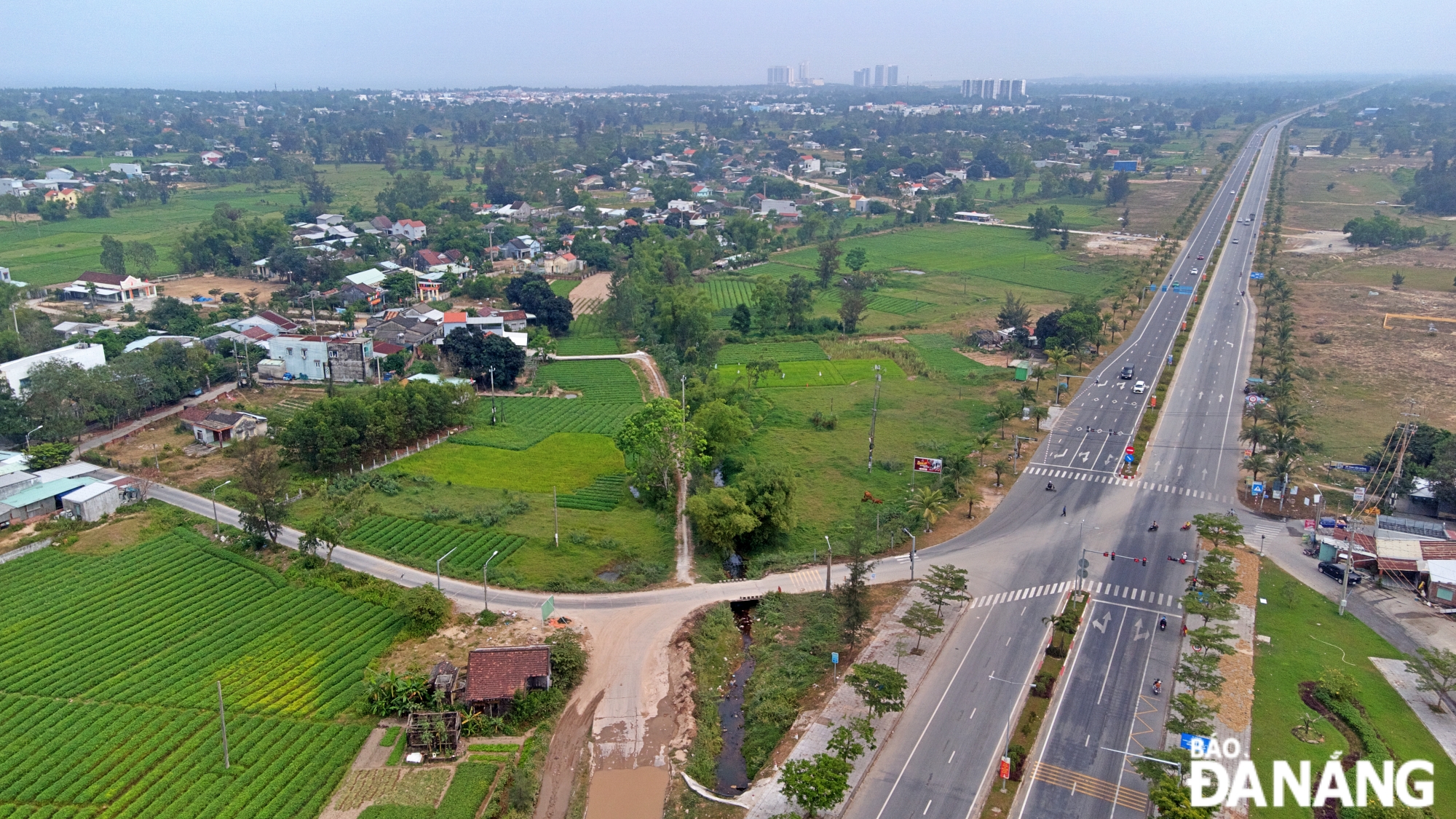Da Nang eyes quality healthcare services for all
In an effort to meet the needs of taking care of people's health, Da Nang’s healthcare sector has been constantly evolving and innovating with many advanced medical techniques being deployed and applied at medical examination and treatment facilities. This is also the content oriented by the Politburo in its Conclusion No. 79-KL/TW on continuing to implement Resolution No. 43-NQ/TW on building and developing Da Nang to 2030, with a vision to 2045.
 |
| The city's health sector has been focusing on developing specialised medical techniques to serve the people's increasing need for medical examination and treatment. Photo: PHAN CHUNG |
Increasingly modern healthcare system
In recent years, the system of medical examination and treatment facilities citywide has been upgraded and perfected in a bid to satisfy the requirements of protecting and improving the health of the entire population
The city now has 1,076 licensed medical facilities, including 96 public ones, 1 infirmary, 56 health stations at ward and commune levels, 7 emergency and patient transport services and 980 private medical facilities.
The upgrading and expansion of the system has significantly contributed to increasing the number of hospital beds to serve patients, and curb the current patient overload at all levels.
According to statistics, the city has 74 hospital beds per 10,000 inhabitants, 2 times higher than the national average.
Aside from the completion and synchronous development of the medical examination and treatment network, the local healthcare sector and its affiliated facilities have paid special attention to improving quality of medical checkups and treatment.
The municipal Department of Health continues to implement hospital quality assessment activities according to the hospital quality assessment criteria set, and at the same time, includes hospital quality indicators in the general planning indicators assigned to units for annual implementation.
Hospitals have been constantly implementing activities to improve the quality such as boosting administrative reform, adjusting appropriate medical examination and treatment procedures, shortening patient waiting time, standardising professional procedures, enhancing the attitude of medical staff towards people, and increasing the reception and handling of people's feedback via hotlines.
Also, the application of information technology has been promoted in hospital management such as carrying out electronic medical records, medical quality management systems, infection control, etc.
The investment of resources in medical facilities helps develop a uniform medical system from all levels.
According to Dr. Nguyen Tien Hung, Deputy Director in charge of Ngu Hanh Son District-based Medical Station, the city's policies and guidelines have recently promoted the role of district-based medical centres.
"In recent years, the city has devoted a lot of resources to investing in and upgrading district-based medical centres. This solves the problem of overload and degradation of the healthcare facilities that were built many years ago. In addition, there are a number of policies to attract, train and support human resources when they return to work here. This helps attract and retain many doctors, nurses and medical staff with expertise to stay and work" said Dr. Hung.
In addition to public healthcare facilities, the system of private healthcare facilities is also being developed.
According to Dr. Truong Nguyen Thoai Nhan, Director of the Hoan My Da Nang Hospital, the city's policies and guidelines in recent times have created favourable conditions for the development of the private healthcare system.
Dr. Tran Thanh Thuy, Director of the municipal Department of Health, remarked human resources are always prioritised in both quantity and quality. The city has 20.1 doctors per 10,000 inhabitants, 2 times higher than the national average.
Notably, the health sector has continuously implemented a plan to recruit civil servants according to the policy of attracting doctors for public health facilities, along with the levels of allowances. This activity helps to supplement and fully consolidate the medical staff at all levels, thereby improve the quality and efficiency of healthcare and protection activities for the people.
Human resources recruited according to the aforementioned policy will be arranged and used according to the trained major.
Deploying many advanced and specialized techniques
To meet the increasingly high demand for healthcare, specialsed hospitals across the city have gradually deployed many specialised techniques, hereby improving the quality of medical examination and treatment activities.
Many specialised techniques have been successfully deployed such as in vitro fertilisation, early essential newborn care, and skin-to-skin contact (the Da Nang Maternity and Pediatrics Hospital); lobectomy, embryotomy, mediastinal tumor resection, pancreaticoduodenectomy, liver resection (the Da Nang Oncology Hospital); testing therapy and psychological therapy in the treatment of children (the Mental Hospital); and stem cell transplantation for spinal cord injury treatment, kidney transplantation, solitaire thrombectomy for acute stroke, the application of ECMO and ultrafiltration hemodialysis technique (the Da Nang Hospital).
In recent years, Da Nang has focused on investing, renovating and upgrading medical facilities. Many projects have been carried out on schedule such as the upgrade of the Da Nang Maternity and Pediatrics Hospital, the Da Nang Hospital at phase 2, the Ngu Hanh Son District-based Medical Centre, and the Thanh Khe District-based Medical Centre at phase 1.
Previously, the Organ and Stem Cell Transplantation Centre and the Centre for Neurosurgery, Trauma and Plastic Burns at the Da Nang Hospital had been put into operation, opening up opportunities to develop specialised medical techniques, and helping patients receive timely care and treatment.
"Following the direction of the city's leaders on implementing Resolution No. 43, in recent times, the local health sector and its affiliated units have been innovating and improving the quality of services. In the time to come, the local healthcare sector will continue to effectively implement assigned tasks, in which the quality of medical examination and treatment service will be taken as a measure of development, ensuring the mission of taking care of people's health and orienting the development of the sector", said Dr. Thuy.
Reporting by PHAN CHUNG - Translating by M.DUNG








